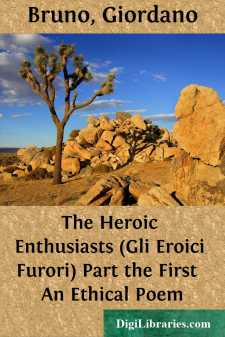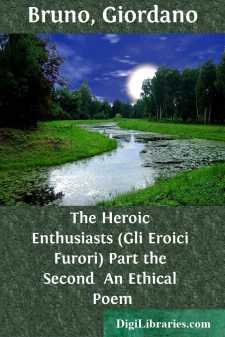Categories
- Antiques & Collectibles 13
- Architecture 36
- Art 48
- Bibles 22
- Biography & Autobiography 813
- Body, Mind & Spirit 142
- Business & Economics 28
- Children's Books 17
- Children's Fiction 14
- Computers 4
- Cooking 94
- Crafts & Hobbies 4
- Drama 346
- Education 46
- Family & Relationships 57
- Fiction 11829
- Games 19
- Gardening 17
- Health & Fitness 34
- History 1377
- House & Home 1
- Humor 147
- Juvenile Fiction 1873
- Juvenile Nonfiction 202
- Language Arts & Disciplines 88
- Law 16
- Literary Collections 686
- Literary Criticism 179
- Mathematics 13
- Medical 41
- Music 40
- Nature 179
- Non-Classifiable 1768
- Performing Arts 7
- Periodicals 1453
- Philosophy 64
- Photography 2
- Poetry 896
- Political Science 203
- Psychology 42
- Reference 154
- Religion 513
- Science 126
- Self-Help 84
- Social Science 81
- Sports & Recreation 34
- Study Aids 3
- Technology & Engineering 59
- Transportation 23
- Travel 463
- True Crime 29
The Heroic Enthusiasts (Gli Eroici Furori) Part the First An Ethical Poem
by: Giordano Bruno
Description:
Excerpt
INTRODUCTION.
Nola, a city founded by the Chalcidian Greeks, at a short distance from Naples and from Vesuvius, was the birth-place of Giordano Bruno. It is described by David Levi as a city which from ancient times had always been consecrated to science and letters. From the time of the Romans to that of the Barbarians and of the Middle Ages, Nola was conspicuous for culture and refinement, and its inhabitants were in all times remarkable for their courteous manners, for valour, and for keenness of perception. They were, moreover, distinguished by their love for and study of philosophy; so that this city was ever a favourite dwelling-place for the choice spirits of the Renaissance. It may also be asserted that Nola was the only city of Magna Græcia which, in spite of the persecutions of Pagan emperors and Christian princes and clergy, always preserved the philosophical traditions of the Pythagoreans, and never was the sacred fire on the altar of Vesta suffered to become entirely extinct. Such was the intellectual and moral atmosphere in which Bruno passed his childhood. His paternal home was situated at the foot of Mount Cicada, celebrated for its fruitful soil. From early youth his pleasure was to pass the night out on the mountain, now watching the stars, now contemplating the arid, desolate sides of Vesuvius. He tells how, in recalling those days—the only peaceful ones of his life—he used to think, as he looked up at the infinite expanse of heaven and the confines of the horizon, with the towering volcano, that this must be the ultimate end of the earth, and it appeared as if neither tree nor grass refreshed the dreary space which stretched out to the foot of the bare smoky mountain. When, grown older, he came nearer to it, and saw the mountain so different from what it had appeared, and the intervening space that, seen from afar, had looked so bare and sterile, all covered with fruit-trees and enriched with vineyards, he began to see how illusory the judgment of the senses may be; and the first doubt was planted in his young soul as he perceived that, while the mind may grasp Nature in her grandeur and majesty, the work of the sage must be to examine her in detail, and penetrate to the cause of things. When he appeared before the tribunal of the Holy Office at Venice, being asked to declare who and what he was, he said: "My name is Giordano, of the family of Bruno, of the city of Nola, twelve miles from Naples. There was I born and brought up. My profession has been and is that of letters, and of all the sciences. My father's name was Giovanni, and my mother was Francesca Savolini; and my father was a soldier. He is dead, and also mother. I am forty-four years old, having been born in 1548." He always regarded Nola with patriotic pride, and he received his first instruction in his father's house and in the public schools. Of a sad disposition, and gifted with a most lively imagination, he was from his earliest years given to meditation and to poetry. The early years of Bruno's life were times of agitation and misfortune, and not propitious to study. The Neapolitan provinces were disturbed by constant earthquakes, and devastated by pestilence and famine. The Turks fought, and ravaged the country, and made slaves of the inhabitants; the neighbouring provinces were still more harassed by hordes of bandits and outlaws, who invested Calabria, led by a terrible chief called Marcone. The Inquisition stood prepared to light its fires and slaughter the heretic. The Waldensians, who had lately been driven out of Piedmont, and had sought a shelter in the Calabrian territory, were hunted down and given over to the executioner.
The convent was the only refuge from violence, and Bruno, either from religious enthusiasm, or in order to be able to devote himself to study, became a friar at the age of fifteen. There, in the quiet cloister of the convent of St....



